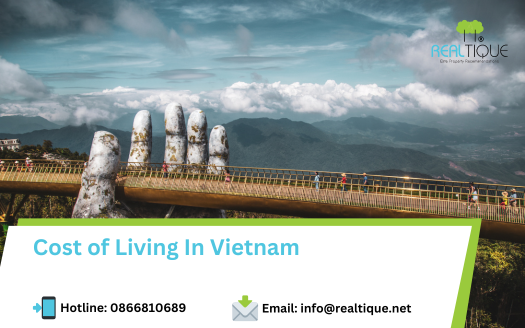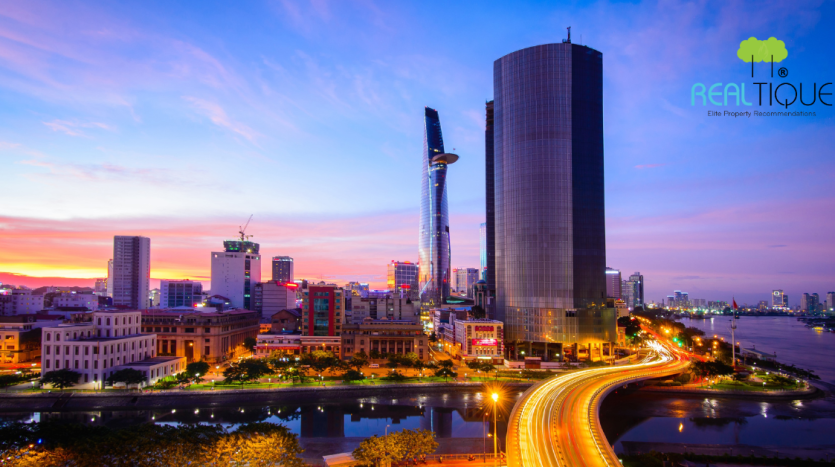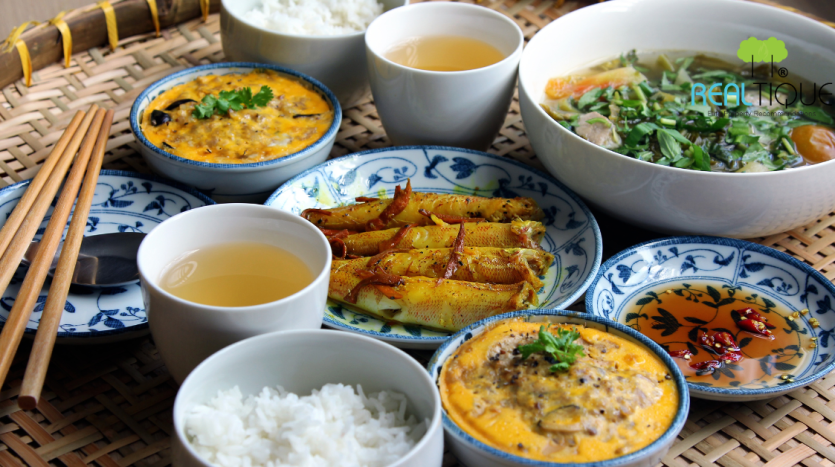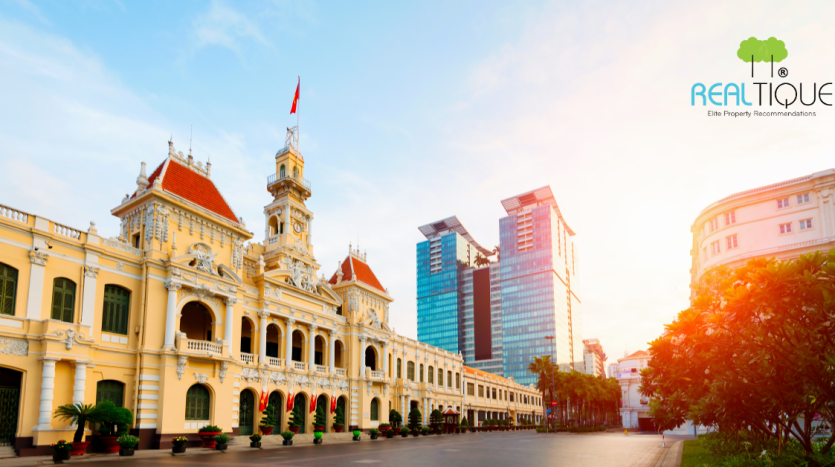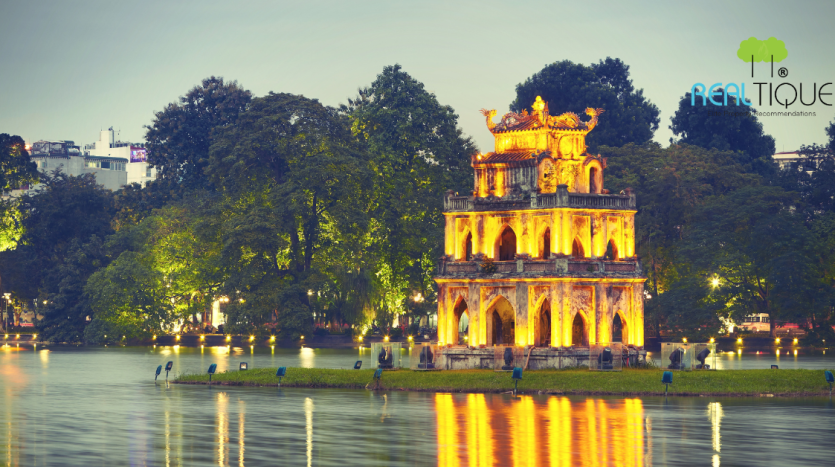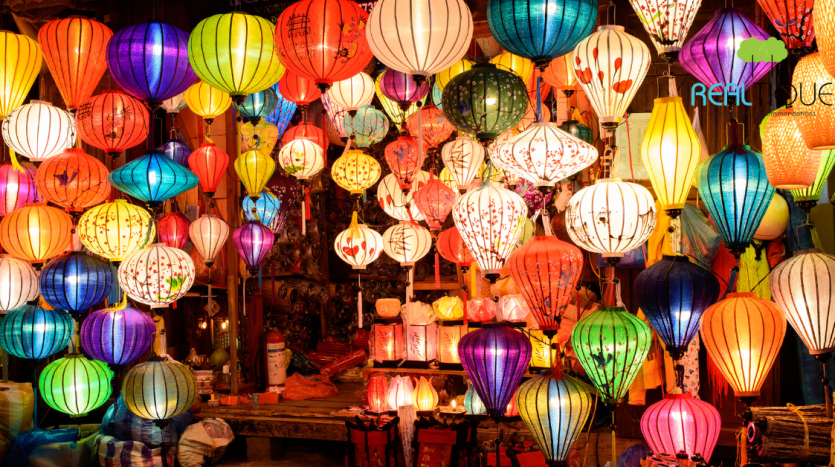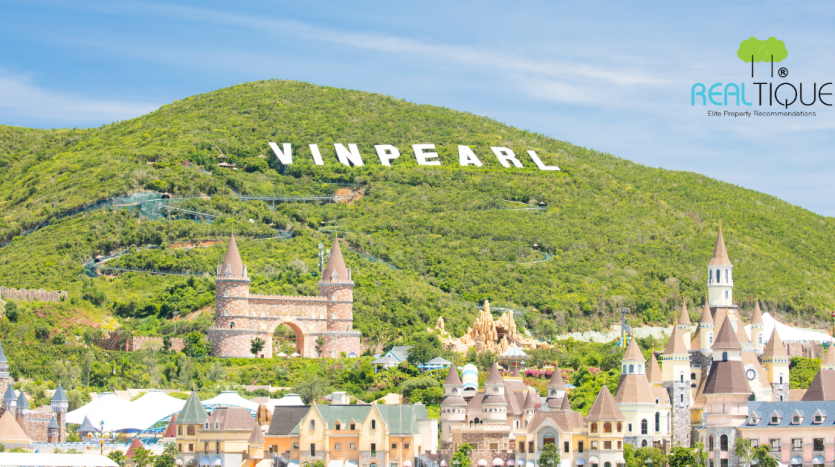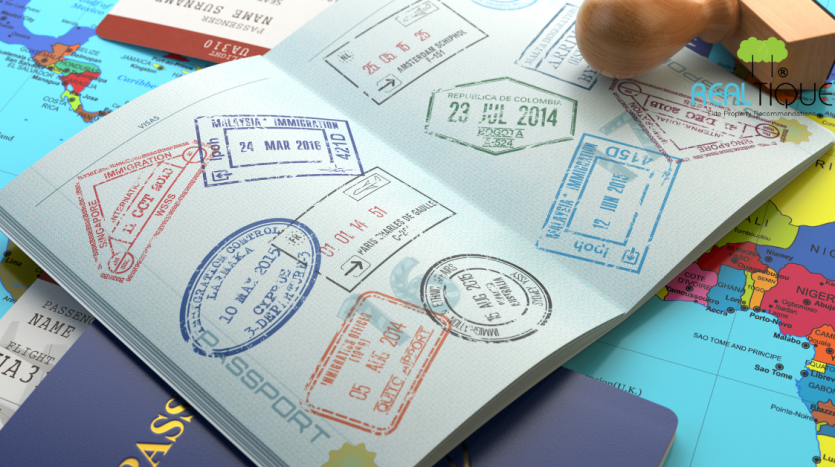Cost of Living in Vietnam – Latest Updates
Cost of Living in Vietnam
Living costs in Vietnam can pleasantly surprise you with its affordability. From bustling Ho Chi Minh City to charming Hanoi, the expenses for expats in Vietnam hover around a level that might make you reconsider your budgeting strategies.
The omnipresent motorbike culture, vibrant street food scene, and overall way of life in Vietnam contribute to its unique charm.
But, what about the specifics of everyday expenses and the nuances that shape the cost of living in this Southeast Asian gem?
Key Takeaways
- Affordable rent, meals, and transportation make living in Vietnam cost-effective.
- Diverse housing options cater to various preferences and budgets.
- Healthcare expenses are relatively low, ensuring quality care at reasonable prices.
- Embrace the vibrant street food culture and unique experiences while budgeting wisely.
When considering the cost of living in Vietnam, affordability becomes a key factor for many expatriates and travelers. Vietnam offers a relatively low cost of living compared to many Western countries. Rent for a one-bedroom apartment in a city center can range from $300 to $700 per month, depending on the location and amenities. Eating out at local street food stalls can cost as little as $1 to $3 per meal, making dining out a budget-friendly option.
Transportation costs in Vietnam are also affordable, with motorbike rentals available for around $50 to $70 per month. Public transportation like buses and trains are inexpensive ways to get around cities and between provinces. Healthcare costs are significantly lower than in developed countries, with a doctor’s visit typically costing between $15 to $30.
Considering Living in Vietnam?
Considering living in Vietnam offers a unique cultural experience with affordable costs and diverse lifestyle options. The country boasts a rich history, delicious cuisine, and welcoming locals, making it an attractive destination for expats. When you decide to live in Vietnam, you’ll have the chance to explore bustling cities, tranquil countryside, and breathtaking beaches, all within reach.
One of the key aspects of living in Vietnam is the cost of accommodation. Renting a comfortable apartment in the city center can be much more affordable compared to Western countries. You can also choose from a variety of housing options, ranging from modern high-rises to traditional Vietnamese houses.
Moreover, the vibrant street food culture in Vietnam allows you to enjoy delicious meals at incredibly low prices. You can savor local delicacies like pho, banh mi, and fresh seafood from markets or street vendors. Additionally, transportation costs are budget-friendly, with options like motorbike taxis, buses, and ride-sharing services readily available for your convenience.
| Aspects of Life in Vietnam | Description |
|---|---|
| Street Food | Endless variety of delicious and affordable dishes available at every turn. |
| Festivals | Vibrant celebrations throughout the year, showcasing the rich cultural heritage. |
| Community Living | Tight-knit neighborhoods where locals gather, creating a sense of unity and belonging. |
Food in Vietnam
Life in Vietnam immerses you in a vibrant cultural tapestry, where the streets not only buzz with activity but also tantalize your taste buds with the diverse and appetizing offerings of Vietnamese cuisine.
- Pho: This iconic Vietnamese noodle soup, consisting of broth, rice noodles, herbs, and meat (usually beef or chicken), is a staple dish enjoyed throughout the country.
- Banh Mi: A fusion of Vietnamese and French culinary influences, Banh Mi is a delicious sandwich filled with various ingredients like pate, Vietnamese sausage, pickled vegetables, and fresh herbs.
- Bun Cha: Hailing from Hanoi, this dish features grilled fatty pork served with rice noodles, herbs, and a flavorsome dipping sauce.
- Goi Cuon: Also known as Vietnamese fresh spring rolls, these translucent delights are packed with shrimp, herbs, pork, and vermicelli noodles, offering a refreshing and healthy dining option.
Vietnamese cuisine not only delights your palate but also reflects the country’s rich history and cultural diversity.
The Bustling Ho Chi Minh City
Ho Chi Minh City offers a bustling urban experience with a mix of modern amenities and traditional charm. The city, also known as Saigon, is a vibrant hub of activity where you can explore diverse neighborhoods, indulge in delicious street food, and immerse yourself in a rich tapestry of history and culture. Here are some key aspects to consider when thinking about living in Ho Chi Minh City:
- Cost of Living: While Ho Chi Minh City can be more expensive than other parts of Vietnam, it still offers a relatively affordable cost of living compared to Western countries.
- Transportation: The city has a well-developed public transportation system, including buses and a future growing network of metro lines, making it easy to get around.
- Accommodation: From modern high-rise apartments to charming French colonial villas, Ho Chi Minh City offers a range of housing options to suit different preferences and budgets.
- Entertainment and Nightlife: Whether you enjoy exploring trendy bars, live music venues, or bustling night markets, Ho Chi Minh City has a vibrant nightlife scene to keep you entertained.
To give you a better idea of what living in Ho Chi Minh City entails, here is a glimpse into the cost of some essentials:
| Expense | Cost (USD) |
|---|---|
| Rent (1 bedroom) | $400 – $700 |
| Meal at local eatery | $2 – $4 |
| Monthly transportation | $10 – $20 |
| Fitness club membership | $20 – $40 |
These figures can vary based on your lifestyle choices, but they give you a general idea of the living costs in this vibrant city. Enjoy the bustling energy and cultural richness that Ho Chi Minh City has to offer!
You can explore various housing options in Ho Chi Minh City to find a place that suits your budget and preferences. Here are some key points to consider when looking for housing in Ho Chi Minh City:
- Districts: Each district in Ho Chi Minh City has its own unique charm and cost of living. District 1 is the central business district with higher rental prices, while District 7 offers a more modern living environment.
- Apartment Types: You can choose from different types of apartments, such as studio apartments, serviced apartments, or full-furnished apartments. Each type comes with its own price range and amenities.
- Rental Costs: Rental prices vary depending on the location, size, and type of housing. It’s essential to compare prices in different areas to find the best deal that fits your budget.
- Utilities: When renting a place, consider additional costs like electricity, water, internet, and maintenance fees. Make sure to factor in these expenses when budgeting for your housing in Ho Chi Minh City.
Cost Around Districts
Exploring housing options in Ho Chi Minh City can provide insight into the costs around various districts and types of apartments available. When considering where to live in the city, it’s essential to factor in not only the rent but also additional expenses such as utilities, internet, and parking fees. The table below outlines the average monthly costs of renting a one-bedroom apartment in different districts of Ho Chi Minh City:
| District | Average Rent (per month) |
|---|---|
| District 1 | $700 – $1000 |
| District 2 | $500 – $800 |
| District 3 | $400 – $600 |
| District 4 | $300 – $500 |
| Binh Thanh District | $350 – $550 |
As you can see, the cost of living in Ho Chi Minh City can vary significantly depending on the district you choose to reside in. Take into account your budget and lifestyle preferences when deciding on the most suitable area for you.
Motorbike Renting
Getting around Ho Chi Minh City on a motorbike is a common and convenient mode of transportation. The bustling streets filled with motorbikes zipping past each other create a vibrant atmosphere that you’ll quickly become accustomed to.
Here’s what you need to know about motorbikes in Vietnam:
- Affordability: Purchasing a motorbike in Vietnam is relatively inexpensive compared to other countries, with second-hand options available for as little as $200.
- Fuel Costs: Petrol prices in Vietnam are reasonable, making it an affordable option for daily commuting.
- Parking: Finding parking for your motorbike in Ho Chi Minh City can be a challenge, especially in popular areas. Be prepared to pay a small fee for parking in certain locations.
- Traffic Rules: While traffic in Vietnam may seem chaotic, there are unspoken rules that govern the flow. Stay alert, drive defensively, and watch out for unexpected maneuvers from other road users.
The Country Capital, Hanoi
Moving from the vibrant urban experience of Ho Chi Minh City, Hanoi offers a contrasting yet equally captivating atmosphere with its own unique charm and cultural richness. As you settle into Hanoi, you’ll notice a more traditional and laid-back vibe compared to the hustle and bustle of Ho Chi Minh City. The city is known for its picturesque lakes, tree-lined boulevards, and well-preserved colonial architecture that blend seamlessly with modern developments.
One of the highlights of living in Hanoi is the rich history and cultural heritage that permeates every corner of the city. From ancient temples and pagodas to the historic Old Quarter, Hanoi is a paradise for history enthusiasts and culture seekers. The food scene in Hanoi is also a major draw, with its world-famous street food culture offering a wide array of delicious and affordable dishes.
While Hanoi may not be as fast-paced as Ho Chi Minh City, it has its own charm that will enchant you and make you feel at home in no time. Whether you’re strolling around Hoan Kiem Lake, exploring the vibrant markets, or sipping egg coffee at a quaint cafe, Hanoi is sure to leave a lasting impression on you.
Here are four essential things to consider as an expat in Hanoi:
- Visa Requirements: Make sure you understand the visa regulations and requirements to stay legally in Vietnam. Keep track of your visa expiration date to avoid any legal issues.
- Cost of Living: Although Hanoi is relatively affordable compared to Western cities, it’s essential to budget wisely. Accommodation, transportation, and healthcare costs should be factored into your monthly expenses.
- Language Barrier: While many Vietnamese people in Hanoi speak English, learning basic Vietnamese phrases can enhance your experience and help you connect with the locals.
- Cultural Etiquette: Familiarize yourself with Vietnamese customs and traditions to show respect to the local culture. Understanding cultural norms will help you integrate better into the community.
The Coastal City of Great Bridges, Da Nang
Exploring the coastal city of Da Nang reveals a vibrant blend of modern amenities and traditional Vietnamese charm, offering expats a unique living experience in Vietnam. The city has a lot to offer, from stunning beaches to delicious local cuisine. Here are some key points to consider when thinking about living in Da Nang:
- Affordable Cost of Living: Da Nang is known for its reasonable cost of living compared to other major cities in Vietnam, making it an attractive option for expats looking to settle down without breaking the bank.
- Expat-Friendly Community: The city has a growing expat community, providing a supportive network for newcomers. You’ll find various social events, clubs, and organizations tailored to help expats feel at home.
- Beautiful Scenery: With its picturesque beaches and lush mountains, Da Nang offers residents breathtaking views and plenty of outdoor activities to enjoy year-round.
- Convenient Location: Situated in central Vietnam, Da Nang’s strategic location allows for easy travel to other popular destinations like Hoi An, Hue, and the My Son Sanctuary.
The Country Currency, VND
With the current exchange rate, understanding the value of the Vietnamese dong (VND) is crucial for managing your finances while living in Vietnam. The VND is the official currency of Vietnam, and you’ll commonly use banknotes for daily transactions. One US dollar is roughly equivalent to around 23,000 VND, which means that prices for goods and services may seem lower compared to Western standards.
When dealing with VND, you might notice that carrying large amounts of cash is common due to the preference for cash transactions over credit or debit cards, especially in smaller establishments. ATMs are widely available in urban areas, allowing you to withdraw VND easily. It’s essential to familiarize yourself with the VND denominations to avoid confusion during transactions.
While the cost of living in Vietnam is generally lower than in many Western countries, prices can vary depending on the city and neighborhood. Understanding the value of VND will help you budget effectively and make informed financial decisions during your stay in Vietnam.
The Central Charming, Hoi An
Understanding the local customs and traditional practices in Vietnam, such as the vibrant festivals in Hoi An, can provide valuable insights into the cultural richness of this region. Hoi An, a charming city in central Vietnam, is famous for its lantern-lit streets, ancient architecture, and cultural heritage. Here, you can immerse yourself in the following experiences:
- Hoi An Lantern Festival: Witness the enchanting beauty of thousands of colorful lanterns lighting up the ancient town during the monthly full moon festival.
- Cuisine Exploration: Indulge in a culinary adventure by sampling local delicacies like Cao Lau noodles and White Rose dumplings at Hoi An’s bustling markets and street food stalls.
- Historical Sites: Explore well-preserved historical sites such as the Japanese Covered Bridge and the Assembly Hall of the Fujian Chinese, showcasing the city’s multicultural past.
- Artisan Workshops: Discover Hoi An’s traditional crafts at workshops where skilled artisans create intricate pottery, silk products, and wood carvings, offering a glimpse into the city’s artisanal heritage.
Utility Expenses
To fully appreciate the cost of living in Vietnam, it’s essential to consider the utility expenses that play a significant role in daily life. When living in Vietnam, you’ll find that utility costs are generally reasonable. The monthly electricity bill for a moderate-sized apartment can range from 600,000 VND to 1,000,000 VND, depending on your usage of air conditioning and other electrical appliances. Water bills are quite low, averaging around 50,000 VND per month. Internet services are crucial for staying connected, with high-speed packages costing approximately 200,000 VND to 500,000 VND monthly.
Additionally, trash collection is usually included in your rent or a small fee of around 20,000 VND per month. Gas for cooking is another essential utility, costing around 100,000 VND per month for a typical household. Overall, utilities in Vietnam are affordable and contribute to the reasonable cost of living in the country. By budgeting wisely and being mindful of your consumption, you can manage your utility expenses effectively while enjoying your time in Vietnam.
Beautiful Beach, Nha Trang
As you explore the cost of living in Vietnam, the city of Nha Trang stands out as a popular destination known for its beautiful beaches and vibrant lifestyle. Nha Trang offers a unique blend of modern amenities and natural beauty that attracts both locals and expats looking for a relaxed yet lively atmosphere.
Here are some key points to consider about living in Nha Trang:
- Accommodation: Rental prices in Nha Trang can vary depending on the location and type of housing. While beachfront properties may be more expensive, there are also affordable options available further inland.
- Food and Dining: Nha Trang is famous for its fresh seafood and diverse culinary scene. You can enjoy delicious meals at local eateries or high-end restaurants, catering to various budgets.
- Transportation: Getting around Nha Trang is convenient with options like taxis, motorbike rentals, and public buses. The city is relatively compact, making it easy to navigate.
- Entertainment: From water sports and beach activities to vibrant nightlife spots, Nha Trang offers a range of entertainment options to suit different preferences.
- n to work in Vietnam, explore job opportunities in your field. Networking and connecting with local businesses can help you secure employment before or after your move.
- Cultural Adaptation: Embracing the local culture and customs is essential for a successful transition. Learn about Vietname
The Visa Run 🙂
Navigating the visa process in Ho Chi Minh City requires careful attention to detail and timely submission of required documentation. Ensuring that you have all the necessary paperwork in order will help make the process smoother and less stressful.
- Visa Types: Understand the different types of visas available for Vietnam, such as tourist visas, business visas, and work permits, to determine which one suits your needs.
- Validity Period: Check the validity period of your visa to avoid overstaying, which can result in fines or other penalties.
- Extension Procedures: If you need to extend your stay in Vietnam, familiarize yourself with the extension procedures and ensure you apply before your current visa expires.
- Visa Agencies: Consider using reputable visa agencies to assist with the application process, especially if you’re unfamiliar with the requirements or procedures in Vietnam.
How Much Does It Cost?
Understanding the cost of visas in Vietnam is essential for planning your budget and avoiding unexpected expenses during your stay. The cost of a visa for Vietnam varies depending on the type and duration of the visa you require. As of now, a single-entry tourist visa typically costs around $25 – $40, while a multiple-entry visa can range from $50 to $95. Prices may fluctuate slightly based on your nationality and the processing method you choose.
If you plan to stay in Vietnam for an extended period, you might opt for a visa with a longer validity. For example, a three-month single-entry visa could cost between $50 and $90, while a multiple-entry visa for the same duration may range from $110 to $140. Keep in mind that visa fees are subject to change, so it’s advisable to check the latest information from the Vietnamese embassy or consulate before applying.
Conclusion
Overall, living in Vietnam can be affordable and enjoyable, especially for expats. Whether you choose to reside in Ho Chi Minh City or Hanoi, the cost of living is relatively low compared to other countries.
Getting around on a motorbike adds to the charm of daily life in Vietnam. Plus, the delicious and diverse food options make for a truly satisfying experience.
Consider making Vietnam your next home for a unique and budget-friendly lifestyle.


